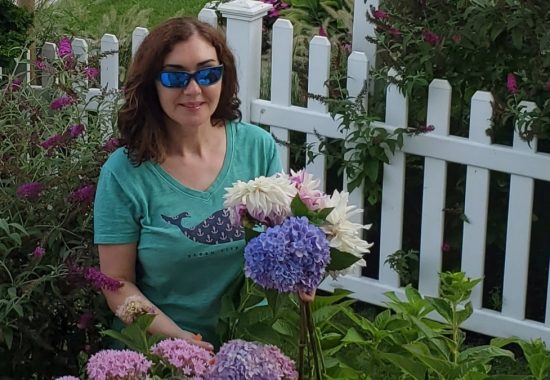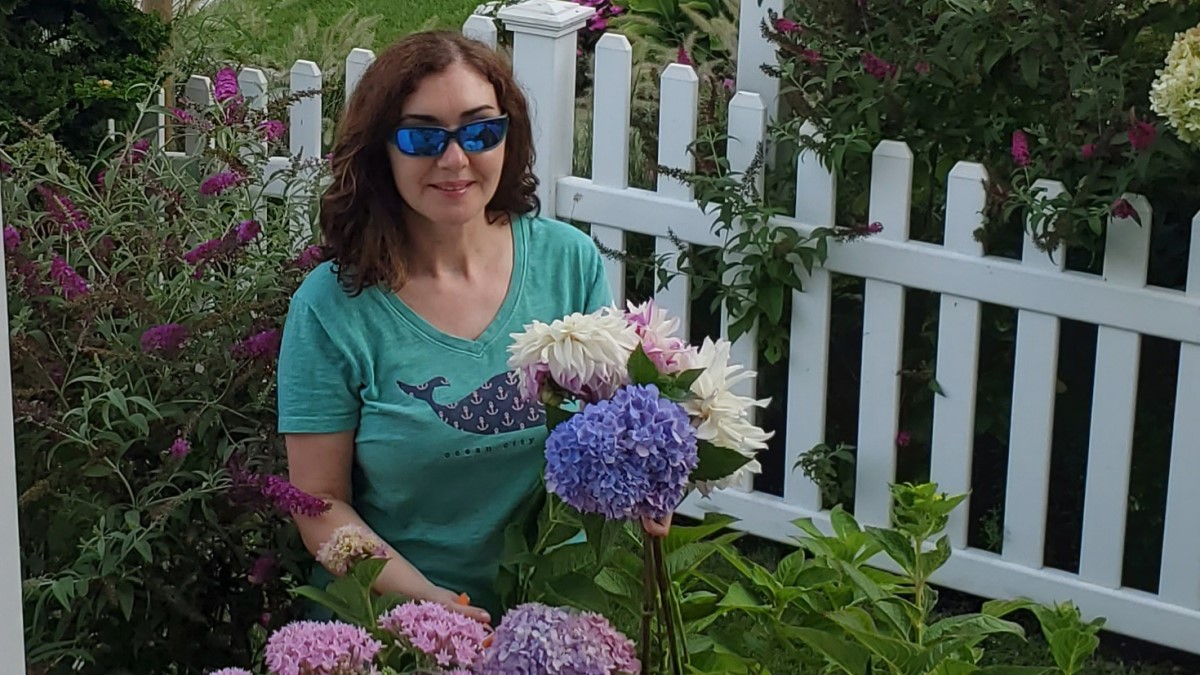Born and raised in Kikinda, Yugoslavia, Dragica Pesci came to the United States in 2000.
She has always valued education, and Dragica earned the highest diploma that can be awarded in Yugoslavia. She studied English and other languages prior to coming to the States. With her language and computer skills, she found a job with ease and dedicated herself to her work. Outside of work, she enjoyed exploring nature, engaging in a variety of sports and exercise, reading, knitting, learning languages, traveling, and spending time with family and friends. She felt like she was truly living the American Dream.
Unfortunately, her life changed dramatically in November of 2016. The accident occurred on a busy freeway during rush hour. Suddenly Dragica’s car was struck from behind by another vehicle, and she sustained a severe concussion. When it happened, Dragica was in shock, and she didn’t really understand at that point how serious her injuries were. After a few minutes, she became aware of her surroundings and began to feel pain in her head. Dragica went home that night, but her condition was worse the next day. Beyond the headaches and fatigue, she also experienced severe vision problems. Her primary care physician diagnosed her with concussion, but she was not referred to a specialist for further evaluation.
When Dragica heard she had a concussion, she was under the impression that she would likely fully recover with a little rest, time, and patience. About a month later, she was taken to the emergency room. Following discharge from the hospital, Dragica began physical therapy, and the care team continued to emphasize that she just needed to give herself more time to recover. The physical therapy sessions ended after six months, and Dragica began to feel much worse again. She struggled to complete basic household tasks like cooking, cleaning, and laundry. Further, as a person who was previously very active, it was frustrating for Dragica to discover that she couldn’t perform basic yoga poses and didn’t have the endurance to go on walks outside. She also wasn’t able to travel to visit her family in Europe, and her vision problems made it difficult to read for long periods of time.
Many patients with invisible injuries like concussion experience negative emotional symptoms, including depression and anxiety, and not being able to engage in her favorite leisure activities was taking an emotional toll on Dragica. With her health deteriorating, Dragica was losing hope of returning to the person she used to be and the life she used to have. At this point, she realized that she needed a care team with expertise in her condition. A few friends recommended that she call MossRehab, and she was so glad that she did.
It is unfortunately common for traumatic brain injury, such as the concussion Dragica experienced, to go unreported or be undertreated. As a result, many patients do not receive the acute care and longer term rehabilitation services they need. After nearly a year following her injury, Dragica had her first appointment at MossRehab. She said she’s “lucky she found Moss”. She explained that “Moss is the best professional care I experienced,” and she went on to describe how her clinical care team treated her as a whole person, rather than just focusing on her physical brain injury. Dragica’s treatment involved physical therapy, speech therapy, vision therapy, and counseling aimed at maximizing her recovery and improving her quality of life.
MossRehab physician Thomas Watanabe, MD, has been instrumental in helping Dragica work through the emotional, mental, and physical aspects of her recovery. “I can say he’s my hero. He saved my life,” Dragica said of Dr. Watanabe. She has enjoyed working with a variety of clinicians, researchers, and staff members at MossRehab over the years. “They’ve become like my family,” Dragica stated. Through her clinical care, she has developed trust in the team at MossRehab and a deep appreciation of their efforts to help her through what she described as the biggest challenge of her life.
For people like Dragica who have experienced a traumatic brain injury, the road to recovery can take months to years. She has continued to benefit from rehabilitation services at MossRehab over the past five years, as well as innovative programs that have helped bring joy to her life. In particular, MossRehab offers horticultural therapy for patients through their “Shoots and Roots” program at the Alice and Herbert Sachs Therapeutic Conservatory. The Conservatory provides opportunities for patients to work with clinicians in a real-world environment to meet their rehabilitation goals, and it also serves as a plant-filled space where patients and visitors can relax and clear their minds.
Participating in the “Shoots and Roots” program and later volunteering at the Conservatory helped Dragica develop a deep passion for gardening and arranging flowers. It was this passion and the plants she has been cultivating in her garden that have helped her endure the recent stresses of the COVID-19 pandemic. Seeing how doctors, nurses, and other frontline workers put their lives on the line to take care of others and save lives during the pandemic really motivated Dragica to find a way that she could give back and show her appreciation for the high quality clinical care she received at MossRehab.
In light of her lifelong love of science and her own experiences with concussion, Dragica decided to make a generous contribution in support of concussion research at Moss Rehabilitation Research Institute (MRRI). Her donation will support a pilot research study that will provide insights into the symptoms that people experience following brain injury. Amanda Rabinowitz, PhD, MRRI Institute Scientist and Director of the Brain Injury Neuropsychology Laboratory is leading this research study. She explains that they have developed an application that will allow users to record their concussion symptoms in real time using their smartphones. These symptoms may range from fatigue to difficulty with memory, and we will be asking participants to record their symptoms at 5 different times throughout the day for 20 days.
“This will give us important insights into the onset, presence, and duration of different symptoms that people may experience after brain injury so that we can work to develop new treatment approaches to ensure comprehensive and personalized treatment is delivered in a timely manner to address the needs of this population,” explained Dr. Rabinowitz.
Helping others is a driving force for Dragica, and she has made it a goal for herself to help MossRehab clinicians and MRRI researchers better understand and treat people with concussion. “I lived through that, so I know how difficult it is, and it is very personal,” she said. Dragica encourages others coping with brain injury to focus on the things they can do, and “never, never give up”. Dragica and other generous donors have provided Moss scientists and clinicians with important resources to advance our understanding of the brain and to further optimize rehabilitation after brain injury.
Learn more about how you can support cutting edge research at MRRI.



5 comment on “MRRI Receives Donor Gift to Support Concussion Research”